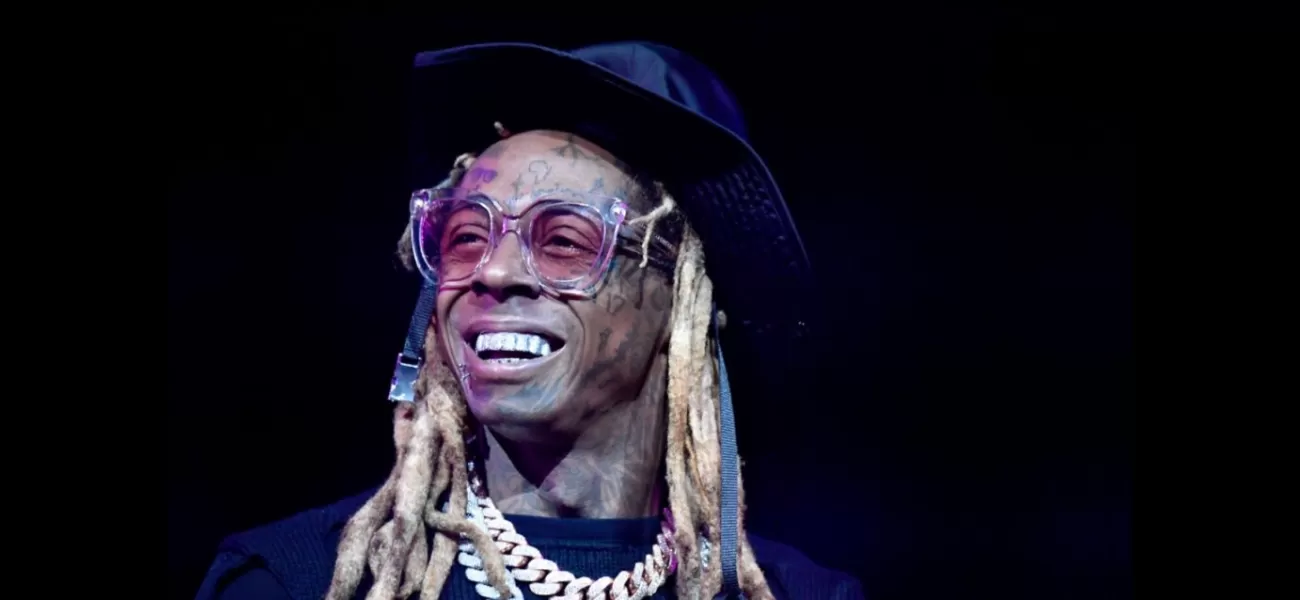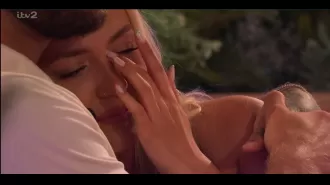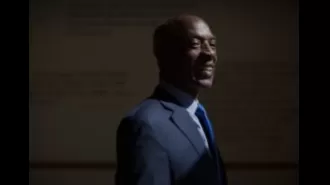Lil Wayne received government aid by falsely claiming to have a drug-free workplace.
Lil Wayne promoted marijuana image but declared drug-free workplace to receive government funds.
March 11th 2024.

Lil Wayne, a well-known rapper, has become synonymous with his open and proud use of marijuana and other drugs. However, recent revelations have shed light on the fact that while he promotes this lifestyle in his music and personal brand, he has presented a different image to the government in order to secure financial aid.
According to Business Insider, newly released documents have revealed that Lil Wayne, along with other artists such as Post Malone, received millions of dollars in relief aid from the Small Business Administration. In fact, in 2021, Lil Wayne's touring company, Young Money Touring Inc., received a whopping $8.9 million.
In his application for the aid, the rapper claimed that his company maintained a "drug-free workplace" and even educated employees on the dangers of drug use. He stated that any violators would face consequences or be sent to rehab. However, this statement seems contradictory as Lil Wayne himself owns a cannabis line and has a signature lighter sound at the start of his songs. Not to mention, he has the word "baked" tattooed on his forehead.
Interestingly, in 2019 when Lil Wayne launched his cannabis line, he openly shared his love for weed and how it inspires his music. In a statement to Benzinga, he said, "I used to just want to get high, now I smoke to get inspired." This statement further highlights the disconnect between his public image and his actions behind closed doors.
Similarly, Post Malone, another popular singer, also received a hefty sum of $10 million in aid for his touring company, Posty Touring Inc. He, too, claimed to have a strict anti-drug policy for his employees. However, in interviews, Malone has openly expressed his love for hallucinogenic mushrooms, stating that they should not be classified as "hard drugs." This is a notable contradiction as psilocybin, the active compound in mushrooms, has been classified as a Schedule 1 drug since 1970.
It is worth noting that the aid was granted under the Shuttered Venue Operators Grant program, which aimed to assist struggling music venues during the pandemic. However, in 2023, it was reported that $200 million of the allocated funds were given to well-established artists who were already financially stable.
This has raised concerns about the consequences that these grant recipients may face for potentially misleading the government in their applications. According to an FAQ page, entities found to have misrepresented information on their applications could face legal repercussions such as perjury charges and civil or criminal penalties.
This situation highlights the disparities in the distribution of financial aid during the pandemic. While big-name artists were receiving millions in relief, many small and minority-owned businesses were struggling to stay afloat. This further emphasizes the need for equal and fair distribution of resources during times of crisis.
According to Business Insider, newly released documents have revealed that Lil Wayne, along with other artists such as Post Malone, received millions of dollars in relief aid from the Small Business Administration. In fact, in 2021, Lil Wayne's touring company, Young Money Touring Inc., received a whopping $8.9 million.
In his application for the aid, the rapper claimed that his company maintained a "drug-free workplace" and even educated employees on the dangers of drug use. He stated that any violators would face consequences or be sent to rehab. However, this statement seems contradictory as Lil Wayne himself owns a cannabis line and has a signature lighter sound at the start of his songs. Not to mention, he has the word "baked" tattooed on his forehead.
Interestingly, in 2019 when Lil Wayne launched his cannabis line, he openly shared his love for weed and how it inspires his music. In a statement to Benzinga, he said, "I used to just want to get high, now I smoke to get inspired." This statement further highlights the disconnect between his public image and his actions behind closed doors.
Similarly, Post Malone, another popular singer, also received a hefty sum of $10 million in aid for his touring company, Posty Touring Inc. He, too, claimed to have a strict anti-drug policy for his employees. However, in interviews, Malone has openly expressed his love for hallucinogenic mushrooms, stating that they should not be classified as "hard drugs." This is a notable contradiction as psilocybin, the active compound in mushrooms, has been classified as a Schedule 1 drug since 1970.
It is worth noting that the aid was granted under the Shuttered Venue Operators Grant program, which aimed to assist struggling music venues during the pandemic. However, in 2023, it was reported that $200 million of the allocated funds were given to well-established artists who were already financially stable.
This has raised concerns about the consequences that these grant recipients may face for potentially misleading the government in their applications. According to an FAQ page, entities found to have misrepresented information on their applications could face legal repercussions such as perjury charges and civil or criminal penalties.
This situation highlights the disparities in the distribution of financial aid during the pandemic. While big-name artists were receiving millions in relief, many small and minority-owned businesses were struggling to stay afloat. This further emphasizes the need for equal and fair distribution of resources during times of crisis.
[This article has been trending online recently and has been generated with AI. Your feed is customized.]
[Generative AI is experimental.]
0
0
Submit Comment





